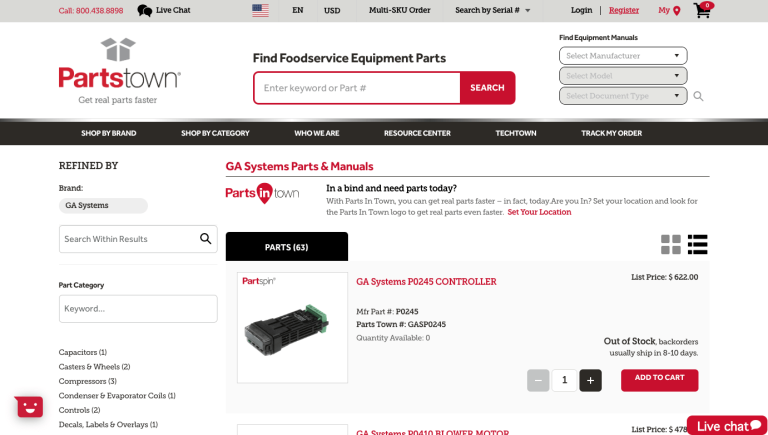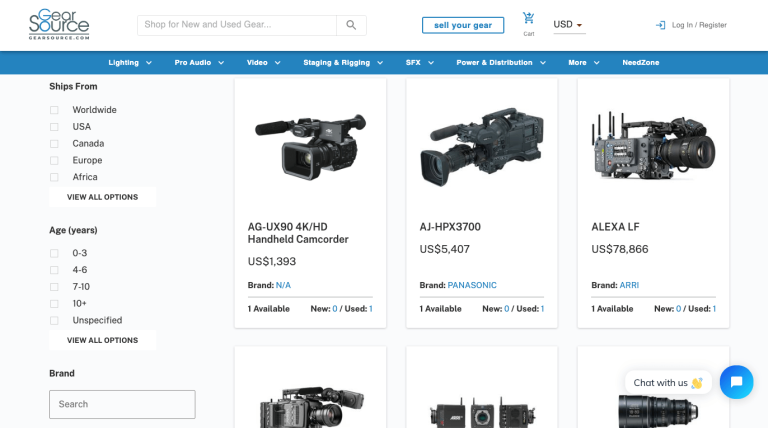The definitive guide to B2B marketplace strategy, trends and software.
Table of Contents
B2B marketplaces were once seen as a vague presence in the world of B2B ecommerce, but today they have become a go-to destination for many digital-first buyers who are navigating supply chain disruptions. With increasing numbers of buyers using marketplaces to source and purchase business goods and services, B2B marketplaces have emerged as a mainstream digital sales channel. If you’re looking to understand the different B2B marketplace models, explore the opportunities they offer, and find partners who can help you achieve your goals, this comprehensive 101 guide to B2B marketplaces in 2023 is the perfect resource for you.
What is a B2B marketplace?
A B2B marketplace is an online platform where businesses can buy and sell goods or services to one another. These marketplaces are designed to facilitate transactions between businesses, rather than between businesses and individual consumers (which is known as B2C or business-to-consumer).
In a B2B marketplace, manufacturers and distributors can showcase their products or services to potential buyers, and buyers can browse and compare different suppliers to find the best options for their needs. The marketplace typically handles aspects such as payment processing, order fulfillment, and customer service.
Types of B2B marketplaces
There are several B2B marketplace models that distributors and manufacturers can deploy, including:
Vertical marketplace model: This model focuses on a specific industry or niche and caters to the unique needs of that industry. Examples include medical supplies, industrial machinery, and construction materials.
Horizontal marketplace model: This model covers a wide range of products and services across multiple industries. Examples include Amazon Business and Alibaba.
Procurement marketplace model: This model focuses on facilitating the purchasing process for businesses. It can include features like request for quote (RFQ) and e-auctions.
Managed marketplace model: This model involves a third-party managing the marketplace on behalf of the manufacturers and distributors. The third-party is responsible for handling logistics, payments, and customer support.
Private marketplace model: This model is exclusive to a specific group of buyers, such as a group of approved vendors or a company’s internal procurement department.
Hybrid marketplace model: This model combines two or more marketplace models to cater to the needs of both buyers and sellers. For example, a vertical marketplace model may also include a procurement marketplace model to streamline the purchasing process for buyers.
Why is marketplace an opportunity for B2B companies?
Marketplaces present a significant opportunity for B2B companies, including manufacturers and distributors, for several reasons.
Firstly, marketplaces provide a centralized platform for businesses to connect with potential customers and partners, which can help to expand their reach and customer base. By listing their products or services on a marketplace, B2B companies can gain exposure to a wider audience than they might be able to reach on their own.
Secondly, marketplaces offer a more convenient and efficient way for businesses to purchase the products and services they need. Instead of dealing with multiple suppliers, businesses can access a wide range of products from various suppliers in one place. This can help to streamline the purchasing process, reduce costs, and save time.
Thirdly, marketplaces provide B2B companies with access to valuable data and insights that can help them improve their operations and make more informed business decisions. By analyzing customer behavior and preferences, B2B companies can identify new opportunities and tailor their offerings to meet the needs of their customers more effectively.
Emerging B2B marketplace trends
There are several emerging trends in B2B marketplace models that are shaping the future of online business-to-business transactions. Some of these trends include:
Integration of artificial intelligence (AI): B2B marketplaces are increasingly using AI to automate processes such as lead generation, customer service, and pricing.
Expansion into new markets: B2B marketplaces are expanding beyond their traditional geographic boundaries and exploring new markets, including emerging economies.
Emphasis on sustainability: With growing concern about the environment, B2B marketplaces are placing greater emphasis on sustainability and environmentally friendly practices.
Mobile optimization: B2B marketplaces are becoming more mobile-friendly, with more buyers and sellers using smartphones and tablets to access their platforms.
Adoption of blockchain technology: B2B marketplaces are exploring the use of blockchain technology to enhance security, reduce fraud, and improve transparency in transactions.
Personalization: B2B marketplaces are starting to provide more personalized experiences for their users, with tailored recommendations, customized pricing, and personalized marketing.
Expansion of services: B2B marketplaces are expanding beyond product sales to offer additional services such as financing, logistics, and warehousing to facilitate the entire supply chain process.
Common features of B2B marketplace software
The features of B2B marketplace software can vary depending on the specific platform and its target audience. However, some common features that many B2B marketplace software solutions offer include:
Product catalog: A centralized product catalog where manufacturers and distributors can list their products, including descriptions, images, and pricing.
Search functionality: A search function that allows buyers to find specific products or suppliers based on keywords, filters, and other criteria.
Ordering and payment processing: A system for buyers to place orders and for sellers to process payments securely.
Order tracking and fulfillment: A system for tracking orders and managing the fulfillment process, including shipping, delivery, and returns.
Supplier management: A system for managing supplier relationships, including onboarding, performance tracking, and communication.
Customer management: A system for managing customer relationships, including tracking orders, providing customer support, and offering personalized recommendations.
Analytics and reporting: Tools for tracking and analyzing marketplace activity, such as sales data, customer behavior, and supplier performance.
Integration with third-party tools: Integration with other tools and services, such as payment gateways, logistics providers, and marketing platforms.
Security and compliance: Robust security features to protect against fraud, data breaches, and other risks, as well as compliance with relevant regulations and standards.
These are just some of the common features that B2B marketplace software solutions may offer.
Examples of B2B marketplaces
Parts Town

Parts Town, a leading distributor of genuine OEM food service parts, began their digital journey in 2007 with the launch of their website. In 2018, they adopted B2B marketplace software Mirakl to meet growing buyer demand. This allowed them to launch Parts In Town in 2020, a program that partners with local service companies, dealers, and distributors to deliver OEM parts in under an hour nationwide. With this marketplace solution, Parts Town can offer same-day fixes without expanding their existing network of warehouses and distribution centers.
GearSource

GearSource is a B2B live events marketplace that enables connections between buyers and sellers of professional gear like lighting, audio, and video equipment. GearSource is a global marketplace operating in over 100 countries around the world.
B2B marketplace software vendors
Mirakl
Mirakl is considered a leader in enterprise B2B marketplace software. The solution that allows manufacturers and distributors to create their own online marketplaces, with features for product catalog management, order and payment processing, supplier management, and customer support. The platform is designed to support various marketplace models and integrates with third-party tools and services. Security and compliance are emphasized, with measures to protect against fraud and comply with regulations.
